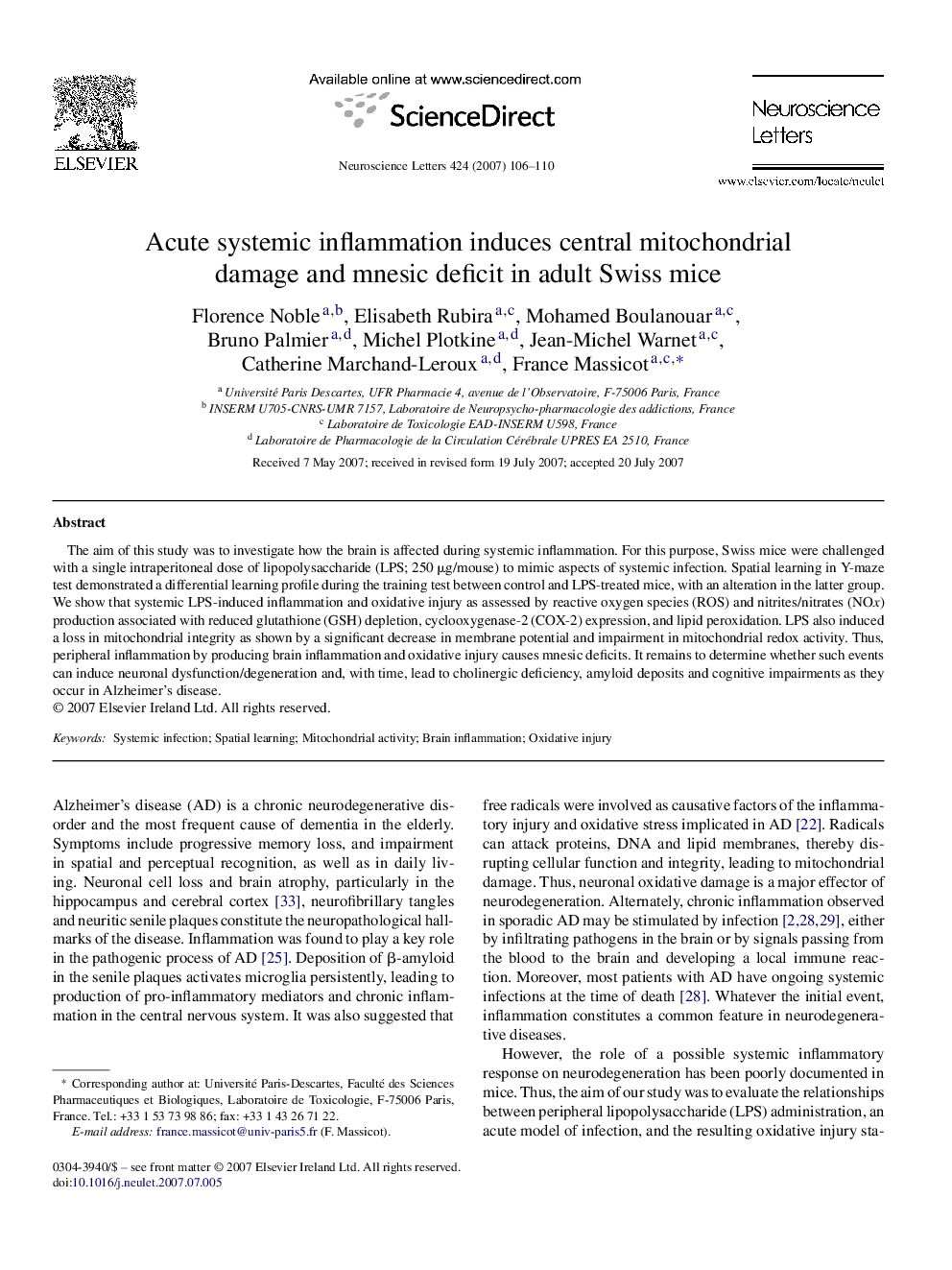| کد مقاله | کد نشریه | سال انتشار | مقاله انگلیسی | نسخه تمام متن |
|---|---|---|---|---|
| 4349234 | 1296931 | 2007 | 5 صفحه PDF | دانلود رایگان |

The aim of this study was to investigate how the brain is affected during systemic inflammation. For this purpose, Swiss mice were challenged with a single intraperitoneal dose of lipopolysaccharide (LPS; 250 μg/mouse) to mimic aspects of systemic infection. Spatial learning in Y-maze test demonstrated a differential learning profile during the training test between control and LPS-treated mice, with an alteration in the latter group. We show that systemic LPS-induced inflammation and oxidative injury as assessed by reactive oxygen species (ROS) and nitrites/nitrates (NOx) production associated with reduced glutathione (GSH) depletion, cyclooxygenase-2 (COX-2) expression, and lipid peroxidation. LPS also induced a loss in mitochondrial integrity as shown by a significant decrease in membrane potential and impairment in mitochondrial redox activity. Thus, peripheral inflammation by producing brain inflammation and oxidative injury causes mnesic deficits. It remains to determine whether such events can induce neuronal dysfunction/degeneration and, with time, lead to cholinergic deficiency, amyloid deposits and cognitive impairments as they occur in Alzheimer's disease.
Journal: Neuroscience Letters - Volume 424, Issue 2, 7 September 2007, Pages 106–110